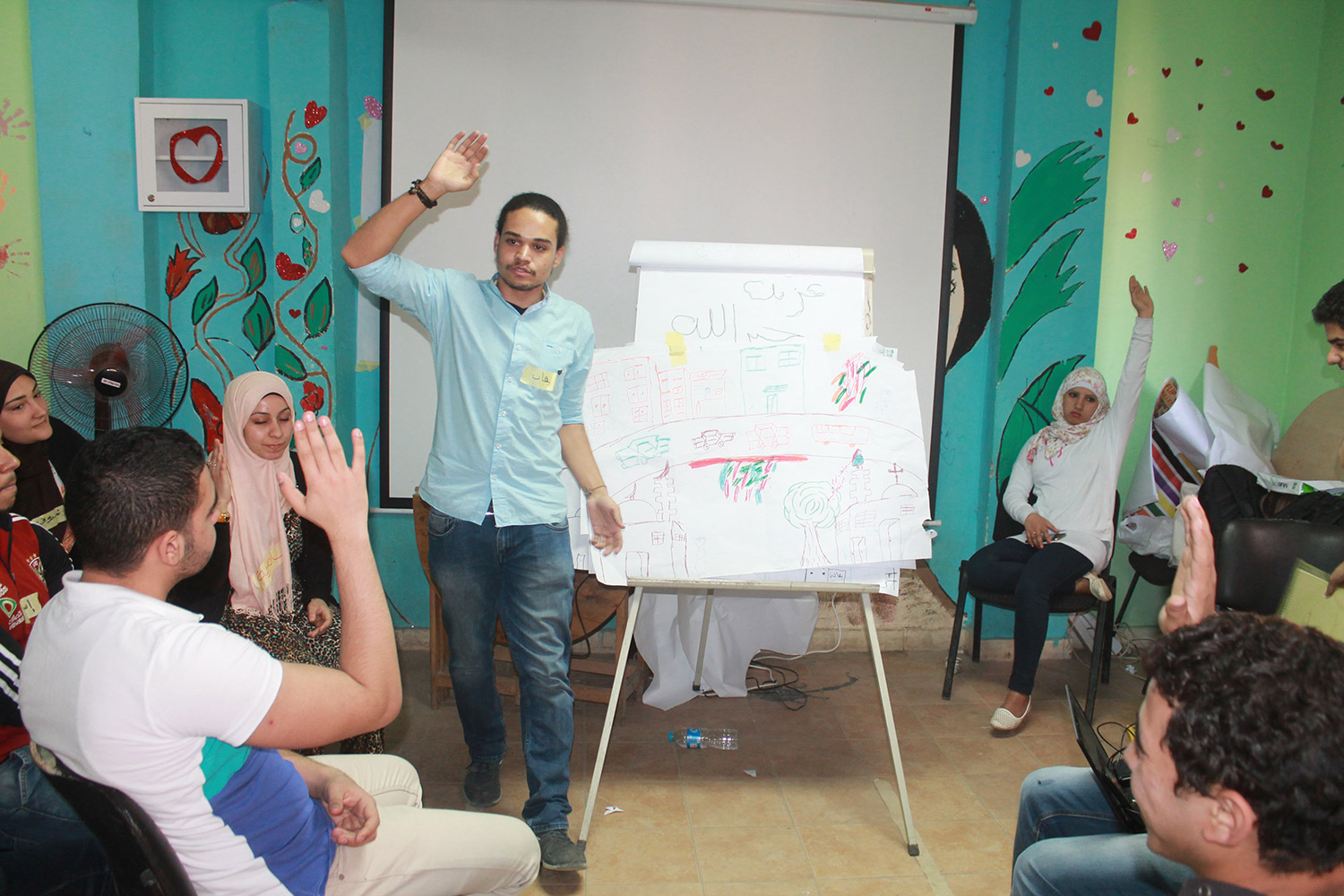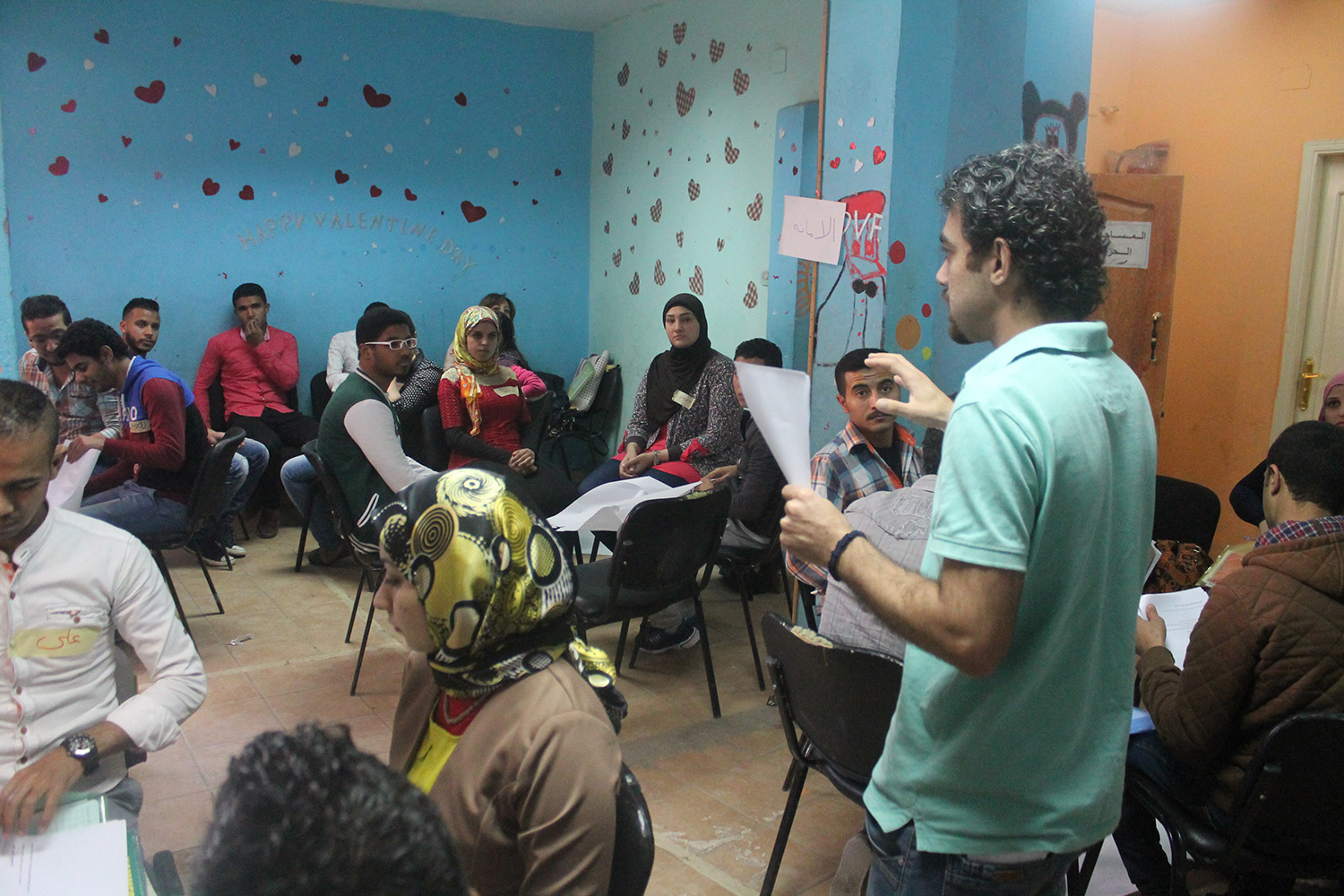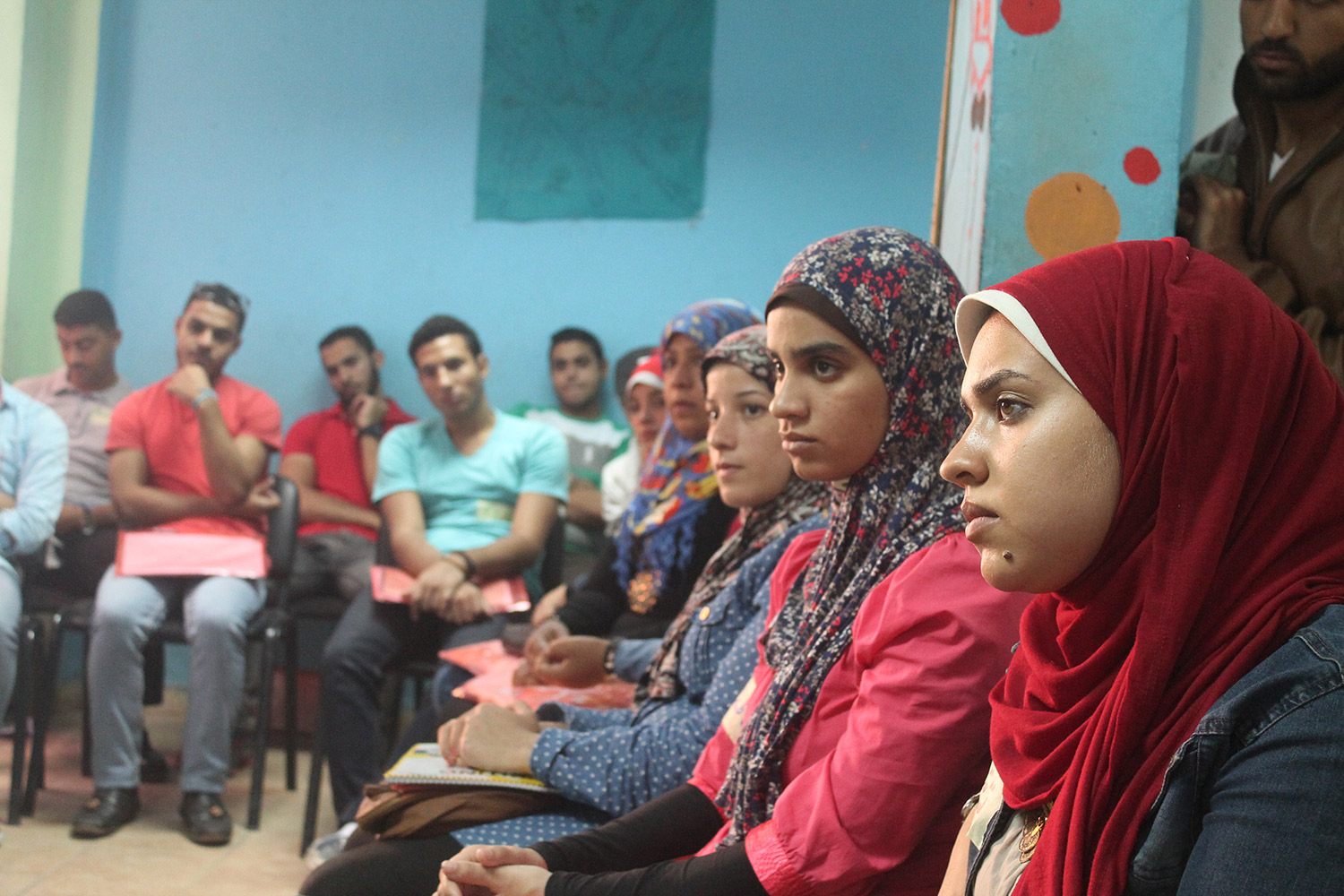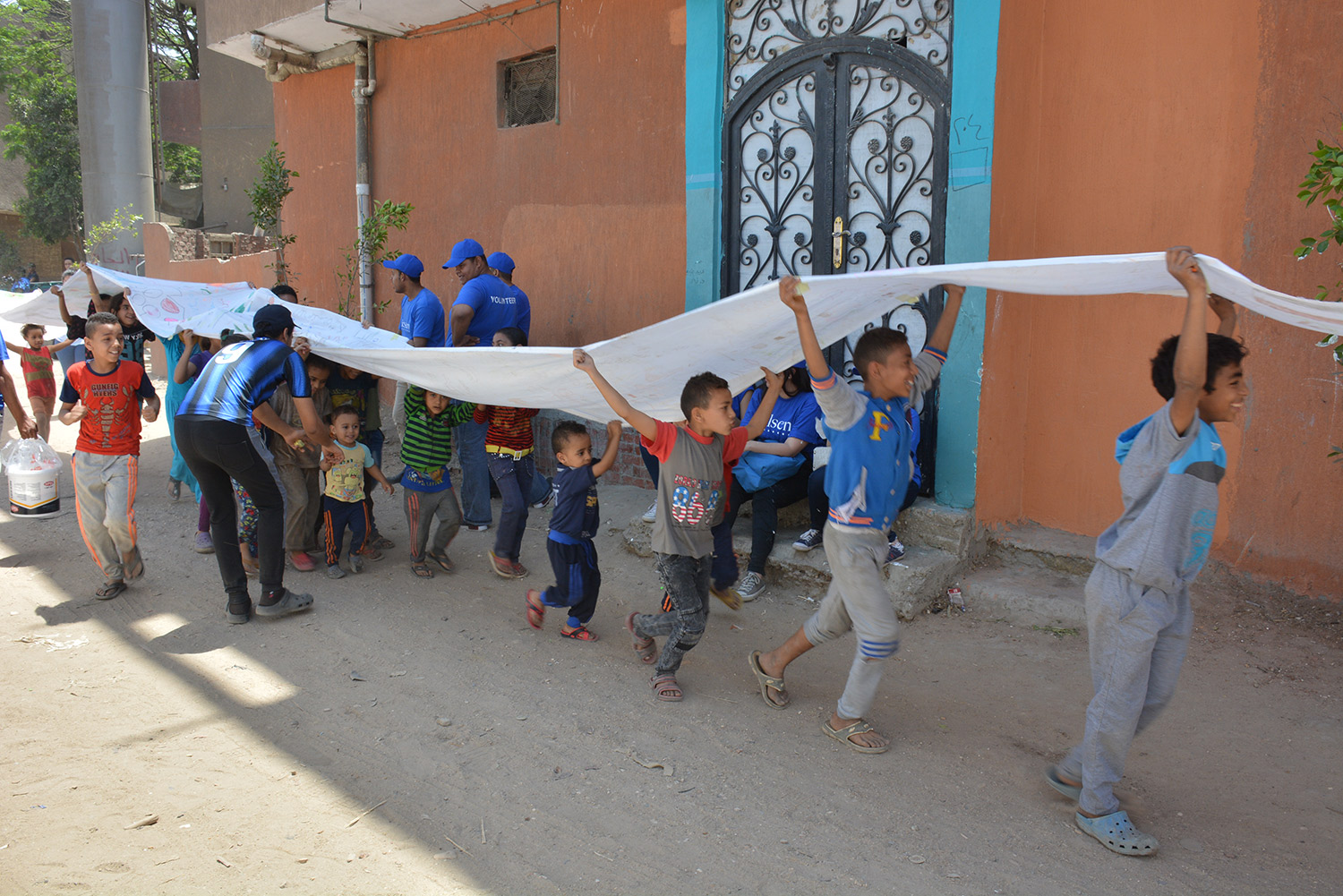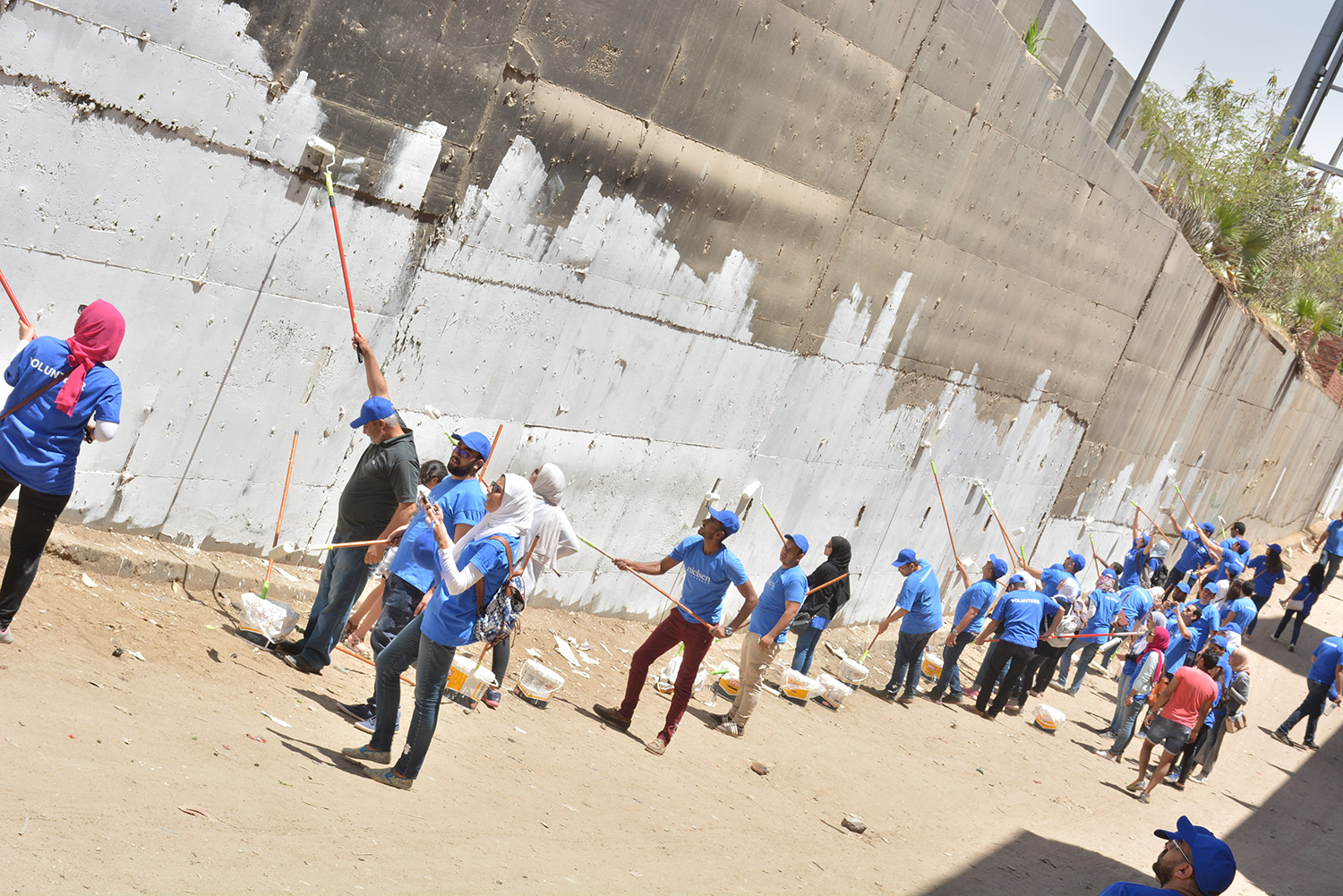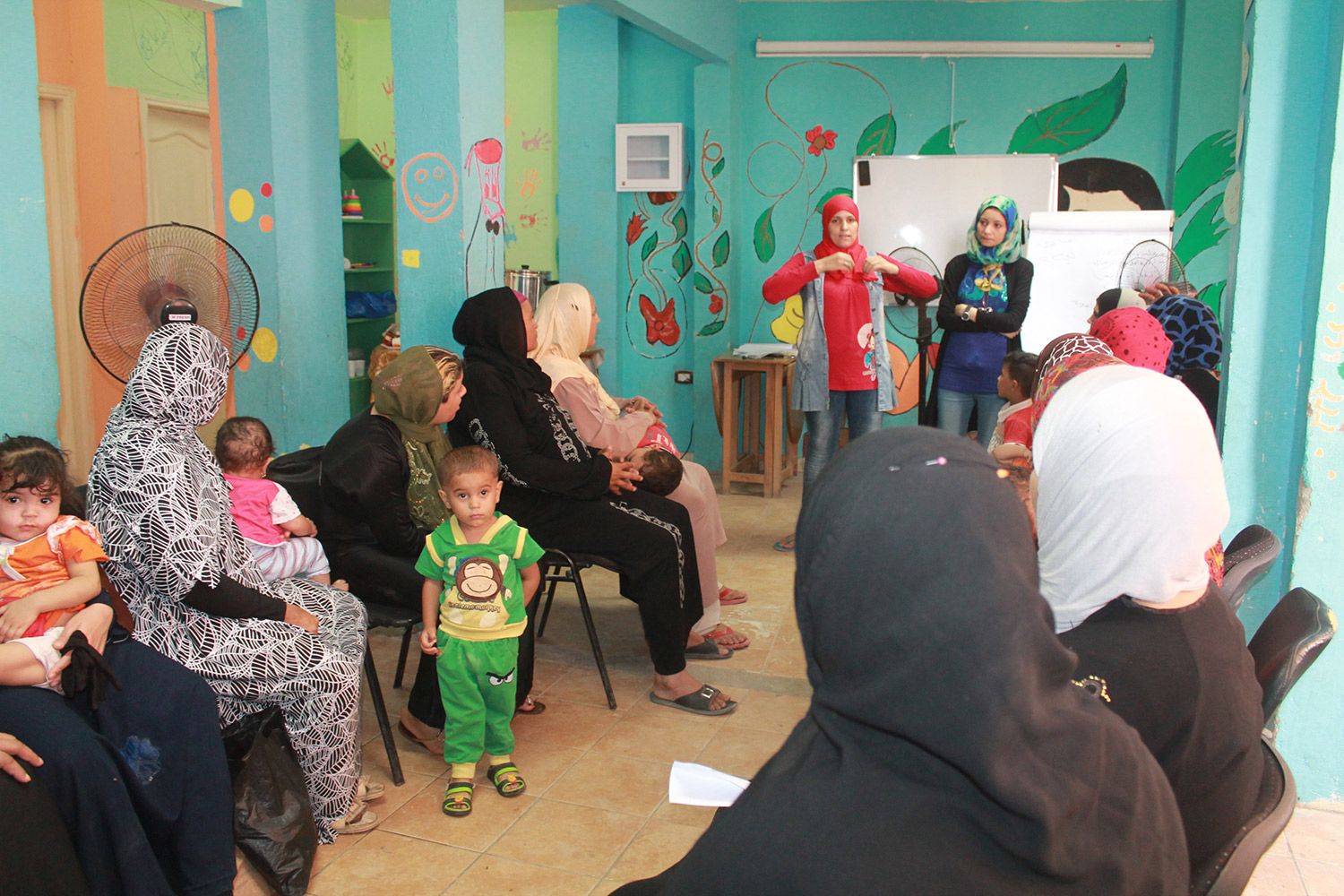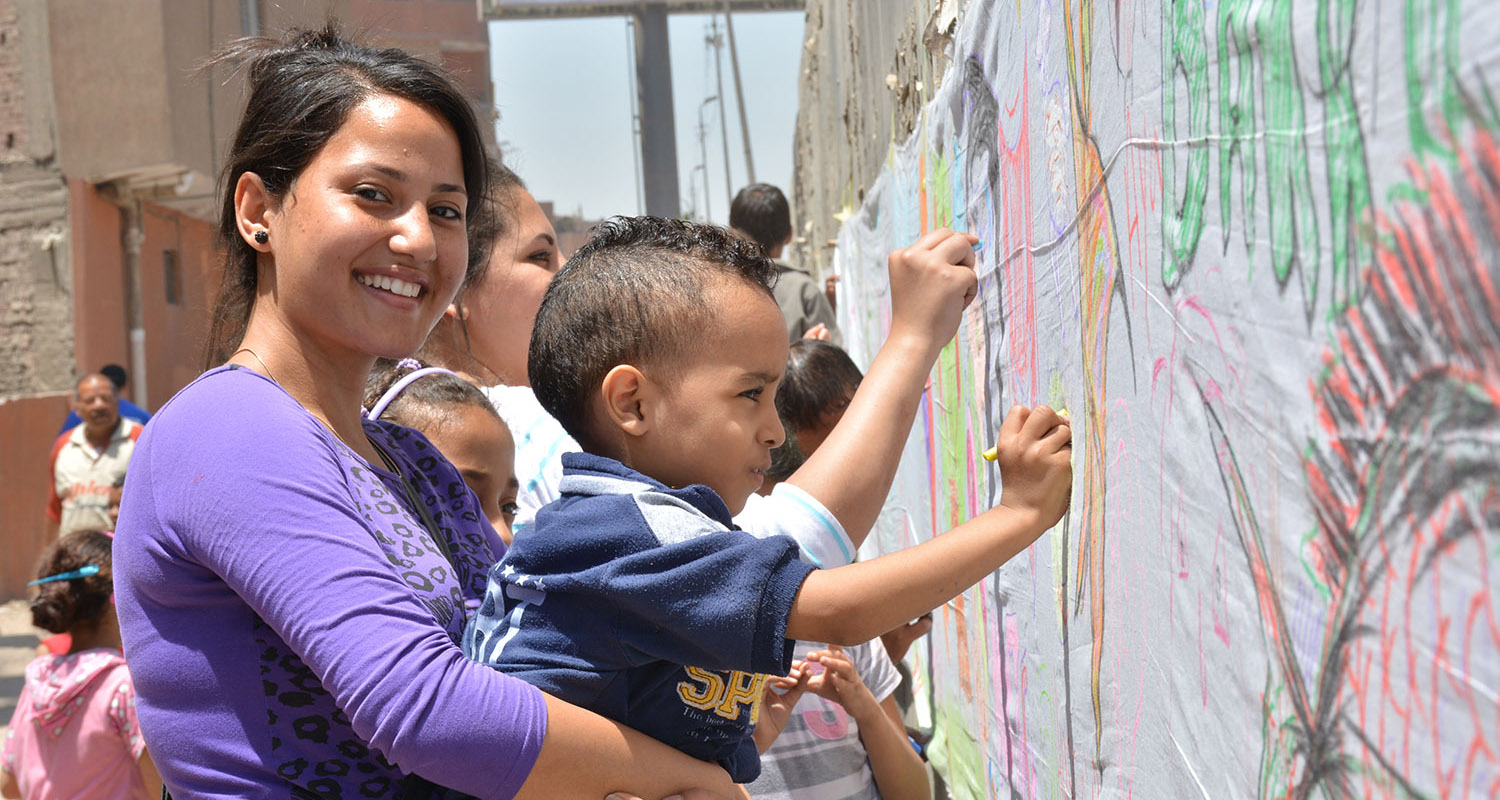Ezbet Khairallah, home to more than 500,000 habitants, is one of the biggest informal settlements in Cairo. Fadi Ghandour was first introduced to Ezbet Khairallah, in 2009, and in 2011 Ruwwad commissioned a needs assessment and asset mapping survey. In 2012, a community center was opened in the Ezbah and a small fund was created with the support of Aramex, Egypt, to educate 50 youths annually in exchange for community service. The center was set up by the youths themselves and continues to grow to this day. By 2016, the number of scholars benefiting from the fund reached 197 scholars.
Ezbet Khairallah
Ezbet Khairallah extends over an area of two square kilometers and is home to an estimated 700,000 habitants, making it one of the largest and most densely populated informal communities in Egypt. The influx from various rural areas on the outskirts of Cairo in search of job opportunities began in the 1970s. People started building their own wood and tin houses on the rocky hill that is today known as Ezbah. Squatters on state-owned land, residents of the Ezbah, have been living under the constant threat of having their homes demolished. The “illegal” status of Ezbah has also deprived it of basic public utilities, like water, electricity and a sewage system. The residents have, therefore, organized themselves to distribute water and electricity cooperatively around the area.
Youth Organizing Program
Youth Organizing is the core program of Ruwwad, Egypt. Each year, a total of 60 scholarships are awarded to youth who in return commit to four hours of community service in the Child and Community Programs. The scholars are trained on child development and inquiry-based learning methods to gain skills necessary to work with children to facilitate their learning as empathetic listeners. They master literacy teaching skills to lead literacy sessions targeting parents and young mothers. Scholars also participate in the Enrichment Program’s weekly Cultural “Dardashat” (Discussion) sessions which focus on exploring the Self, The Other and Citizenship. Youth visit cultural spaces outside Ezbah, and creative outlets for music, theater and crafts.
Each year, Aramex, Egypt, conducts intensive training for Ruwwad Ezbah’s Youth on business ethics, leadership, customer care and entrepreneurship training.
Child Development Program
The library welcomes 650 children on a regular basis and holds children’s literature, creative arts and academic programs, sports activities and intensive literacy classes. Egypt suffers from poor public schooling and teaching practices. Units of inquiry are designed to address social issues that hinder children’s wellness, such as protection from abuse and neglect, and educating parents and children on the importance of good nutrition. The child Information Technology (IT) lab offers programs that enhance academic competency, coding and visual literacy. Safarni is an Egypt founded initiative that educates children through play and imaginary techniques on Egypt’s geography, archeology and culture. Safarni means “take me on a journey;” through this initative, the children learn about rich and diverse places, traditions and the history Egypt through games, role play, film and creative writing.
Community Support Program
The Community Support Program focuses on literacy classes targeting 260 (144 in 2016) adults on a yearly basis. The majority of the participants are women who live in the nearby neighborhood and who receive lessons in exchange for opportunities to gain crafting skills, access nutritional plans and enhance their parenting practices. Youth facilitators integrate reproductive health, civic rights and positive thinking concepts into the literacy sessions.
The program partners with Aramex and other Egyptian businesses to launch campaigns that improve the built environment which is highly polluted due to a lack of basic infrastructure and poor living conditions. The program facilitates short-term initiatives that sprout from the scholars’ community service projects. The largest Ruwwad campaign in Ezbah was carried out under the title “Our Sanitation, Our Health,” which aimed to raise the community’s awareness of sanitation, waste disposal, recycling and other issues related to health and environmental sustainability
